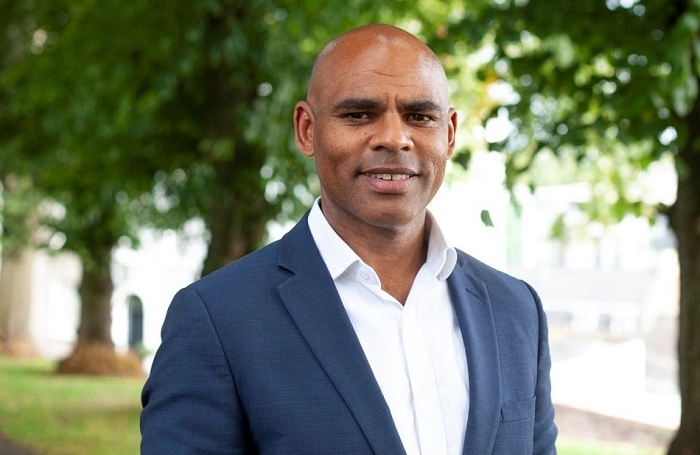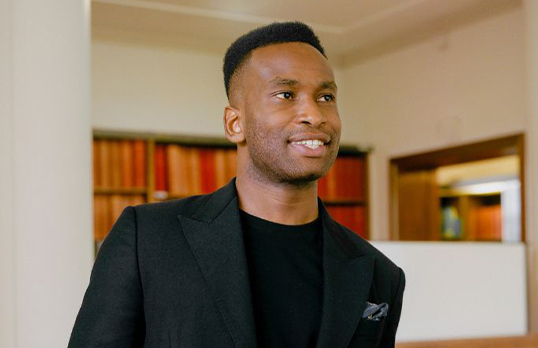The first in the ‘People, Place, Planet' series of online events for 2021 was an interview with the incumbent Mayor of Bristol and recent recipient of an RIBA Honorary Fellowship, Marvin Rees.
Hosted by RIBA Journal’s acting Editor, Eleanor Young, this session gave participants the chance to find out about Marvin’s inspiring route to becoming Mayor, his housing-led, socially inclusive, sustainable ambitions for the city, and his take on some of the developments currently underway.
Marvin Rees won the mayoral election in 2016, taking over from former RIBA President, George Ferguson. With Bristol facing multiple housing challenges, Rees invited architects to come forward with ideas to help it to become the fair, healthy and resilient place envisaged in his One City Plan.
Born into, self-described, ‘hostile circumstances’, Marvin Rees was brought up in a refuge in Bristol. Defying the odds, he attended university, worked in US politics and spent time working for the NHS. All the while, he dedicated himself to community activism and fighting for equality and justice so that others would not have to suffer in the same way he had.
Rees says that growing up in a refuge showed him the value of community, teaching him that the physical home cannot be separated from its social, cultural and economic context. As he describes it, “What to you is a beautiful building to me becomes a symbol of my exclusion if it does not take account of poverty, alienation, and social inequality.”
During his current term, which has been extended for a year because of the COVID-19 pandemic, Marvin Rees has overseen the construction of 8,000 new homes in Bristol, 1,200 of which are council-owned. He helped to set up Goram Homes in 2018, Bristol City Council’s housebuilding vehicle, which has led to a rise in construction, most notably in the Temple Quarter enterprise zone around Bristol Temple Meads train station, which will potentially lead to thousands of new homes and jobs.
At the same time, Marvin Rees' office is supporting several innovative experiments in housing through the Bristol Housing Festival, notably the ZED POD scheme built on stilts above a carpark for young people at risk of homelessness, and LaunchPad, a mixed community housing scheme for students, key workers and people in housing crisis.
Bristol City has a growing reputation for trialling modern methods of construction, showcased by the Boklok (owned by Skanska/IKEA) 173-home Airport Road project (30% council-run) designed by JTP, and L&G’s 185-home Bonnington Walk development (50% affordable) designed by Allford Hall Monaghan Morris.
This all fits coherently into his One City Plan 2050 vision for the city, which is aligned to the UN's 2030 Sustainable Development Goals. It aims to build long-term resilience by having an evolving but steadfast masterplan governing policy, which will attract inward investment.
To that end, Rees has been exploring the viability of economic models with 20-year return horizons with World Economic Forum’s Global Future Council on Cities of Tomorrow and, in preparation for COP 26 in Glasgow later this year, lobbying the new US ambassador to the UN, Linda Thomas-Greenfield about the role that cities can play in actually delivering the UN's Sustainable Development Goals.
With such grand ambitions, he needs help, especially as Bristol faces changes arising from the COVID-19 pandemic and Brexit. Under his ‘Make a big offer, make a big ask’ policy, Marvin Rees is pledging to support initiatives that actively advance his One City Plan and is inviting input from architects on how this can be achieved. “Help us to define the challenge and suggest solutions: we’re open doors for that.”
Text by Matt Thompson.
You can find out about upcoming People Place Planet events here.










